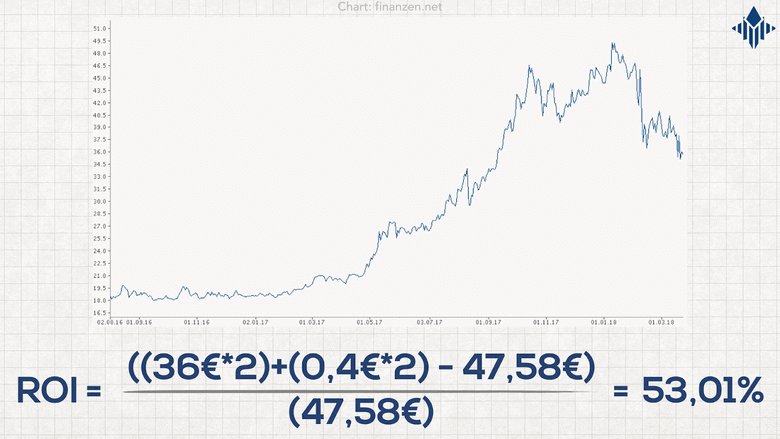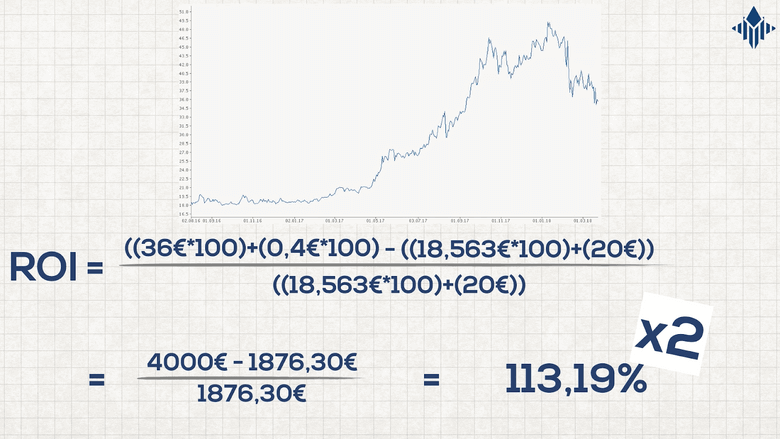When should you invest in stocks? I Shares & ETF knowledge


Word has got around that shares are a worthwhile investment – but when is the best time to start invest in stocks? Should you get started straight away or wait a little longer? I want to answer this question today with a practical example.
If you are interested in tips and tricks on the subject of finance, you should take a look at our forum for personal loans. There you can exchange ideas with other investors and keep up to date with the latest developments.
To answer the question of when is the ideal time to start with securities, I would like to use myself as an example today. In doing so, I want to answer the frequently asked question of whether it is worth buying shares with 50 or 100 euros, or whether it is only worth starting later with more capital.
My first transaction on the stock exchange was the purchase of 2 shares in OHB SE, which I bought for EUR 18.563 each and added to my new securities account. Even then, one of the disadvantages of shares became immediately apparent: the sometimes quite high fees. I had to pay another 10 euros in commission and expenses to finance my 37 euros worth of shares.
Incidentally, the decision in favour of OHB was not made by chance: I had previously spent a long time researching the company, the market and everything to do with it. Even back then, I had a great interest in the world of finance.
And this is where the important aspect of moving from theoretical involvement to practical action and actually getting started with shares comes into play. Because our investment only becomes real when we feel the effects in our wallet.
The argument can therefore certainly be made that it is advisable to start as early as possible, as this allows us to build up expertise, experience and ultimately capital. But a later start with more capital also has its advantages:
More capital = more return
If you’ve been a Northern Finance reader or viewer for a while, you’ll be surprised at the enormous cost of my first share purchase. Thanks to smart brokers and the like, we buy and sell for pennies!
At that time, however, investors were still reliant on bricks-and-mortar banks and their brokerage services, and the fees were correspondingly high. But even today, the costs of buying can still throw a spanner in the works of our return calculations.
This is because we are still being charged large sums, particularly when we want to buy special trading centres or more exotic securities. This harms our returns, as we can see from this calculation example:

The market value of my two OHB shares has pretty much doubled in the interim. Nevertheless, I only achieved a return on investment (ROI) of 53 per cent. How can that be?
The simple answer: the transaction costs have eaten up a large part of it. To calculate the ROI, we subtract the purchase price including fees from our current share price including the current dividends. We then divide by this purchase price once again.
If, on the other hand, I had invested a larger sum directly, I would be in a much better position, i.e. with a higher return. Let’s also calculate this example:

If I had bought 100 shares at the same time instead of just 2, I would have had a much better ROI. Because here too, we deduct the purchase price from the current value of the shares.
However, as we would have paid an estimated EUR 20 in fees in this example – a comparatively low price considering the share price – the effect on our total bill would be small.
After dividing again by the purchase price, we arrive at a return on investment of 113.19 %! This is more than double the ROI that I achieved with my two shares.
The lower cost component of larger investments therefore significantly increases our return. This fact when buying shares makes a later start appear sensible, as we generally have more capital available then.
Sooner or later – my conclusion
So when it comes to buying shares, there are arguments in favour of both an early and a late start. Nevertheless, I clearly recommend starting as early as possible!
Although we make significantly less profit at a young age with our still low income, we receive something that is even more valuable: financial education and personal experience.
After all, we can only master our own finances if we familiarise ourselves with the stock market, make our first investments and make some wrong decisions. If we get involved at a later stage, these experiences will cost us considerably more.
If in doubt, a loss of a few euros at a young age is easy to cope with, as it is our ‘learning money’ in terms of the stock market and finance. If we start later and try to get started with large sums of money, we don’t have this luxury – losing money then hurts much more.


